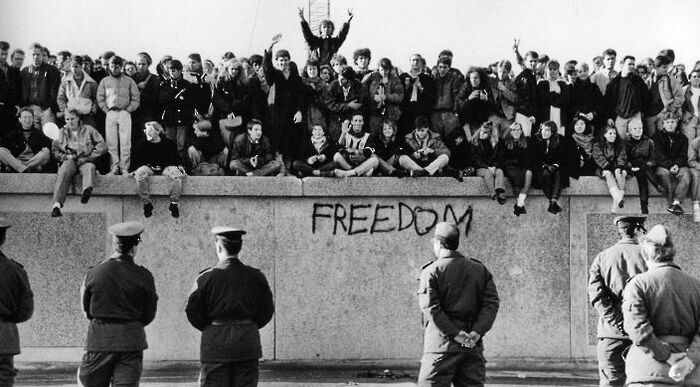Politicians are failing to deal with the future of the Good Friday Agreement
Nadia Hourihan argues the Good Friday Agreement has become the ultimate catch-22 for British politicians as they fumble through Brexit

“Orr would be crazy to fly more missions and sane if he didn’t, but if he was sane he had to fly them. If he flew them he was crazy and didn’t have to; but if he didn’t want to he was sane and had to. Yossarian was moved very deeply by the absolute simplicity of this clause of Catch-22 and let out a respectful whistle.
Is it more maddening when British politicians ignore the glaring contradictions of the Good Friday Agreement, or when they attempt to steamroll right over them?
“That’s some catch, that Catch-22,” he observed.
“It’s the best there is,” Doc Daneeka agreed.”
If Doc Daneeka were to exist in the here and now, he might see a rival to catch-22 in the catch du jour: the Belfast Agreement.
For hardline Brexiteers, there is a catch, and that catch is the Belfast Agreement, better known as the Good Friday Agreement. The architects of this agreement assumed that the United Kingdom would remain within the European Union and its institutions (because leaving would be insane). The Good Friday Agreement specifies cross-border cooperative practices that will become impossible if the United Kingdom scotches its membership of the customs union and the single market. If you want a hard Brexit, you have to leave these institutions; but if you leave these institutions you have to ride roughshod over the Good Friday Agreement; and if the UK so disdains a universally admired peace settlement, negotiating any kind of agreement with the rest of the world will prove more than a little obnoxious.
“Is it more maddening when British politicians ignore the glaring contradictions of the Good Friday Agreement, or when they attempt to steamroll right over them?”
It’s a hell of a catch.
Like a child told that it’s their bedtime, some Brexiteers have chosen to put their fingers in their ears and to babble, noisily, over any mention of this inconvenience.
Writing in the Guardian, Irish journalist Fintan O’Toole said that Boris Johnson, when quizzed about this hellish catch, had “implicitly adopted the great vernacular slogan of people in Northern Ireland during the Troubles: whatever you say, say nothing.”
Others have simply unplugged their ears and decided that a hard Brexit is worth gambling with the lives of their fellow citizens, and the regard of the international community.
Owen Paterson, a former secretary for Northern Ireland, has tweeted that the Good Friday Agreement had “outlived its use”.
Kate Hoey, Labour MP for Vauxhall, has also attacked the treaty by calling it “unsustainable”. Thankfully, her local party then attacked her comments.
Daniel Hannan, a silver-tongued Tory MEP, has similarly scorned the agreement.
This isn’t exactly new. In certain Brexiteer circles there is a longstanding tradition of loathing the Good Friday Agreement. Famously, Michael Gove went so far as to compare it to the appeasement of the Nazis.
However, of late there has been a notable uptick in articles and tweets that pick apart the Good Friday Agreement. Responding to allegations that this is motivated by a desire for a hard Brexit, Daniel Hannan tweeted that this was “bollocks on every level”.
Well, I call bollocks.
The timing is about as obvious as the nose on Pinocchio’s face.
The Good Friday Agreement isn’t a perfect agreement, there’s a robust chorus calling for its reform, but this does not justify the systematic attempt to rubbish its hard-won successes.
Is it more maddening when British politicians ignore the glaring contradictions of the Good Friday Agreement, or when they attempt to steamroll right over them?
At the time of writing, the second most read article on the Irish Times website is “Brexit la-la-land just gets madder and madder”. Maybe we should be encouraging the airing of this madness.
Sometimes it’s only when you hear yourself out loud that you can you hear how stupid you sound.
 News / Cambridge study finds students learn better with notes than AI13 December 2025
News / Cambridge study finds students learn better with notes than AI13 December 2025 News / Cambridge Vet School gets lifeline year to stay accredited28 November 2025
News / Cambridge Vet School gets lifeline year to stay accredited28 November 2025 Science / Did your ex trip on King’s Parade? The science behind the ‘ick’12 December 2025
Science / Did your ex trip on King’s Parade? The science behind the ‘ick’12 December 2025 News / Uni Scout and Guide Club affirms trans inclusion 12 December 2025
News / Uni Scout and Guide Club affirms trans inclusion 12 December 2025 Arts / Modern Modernist Centenary: T. S. Eliot13 December 2025
Arts / Modern Modernist Centenary: T. S. Eliot13 December 2025








